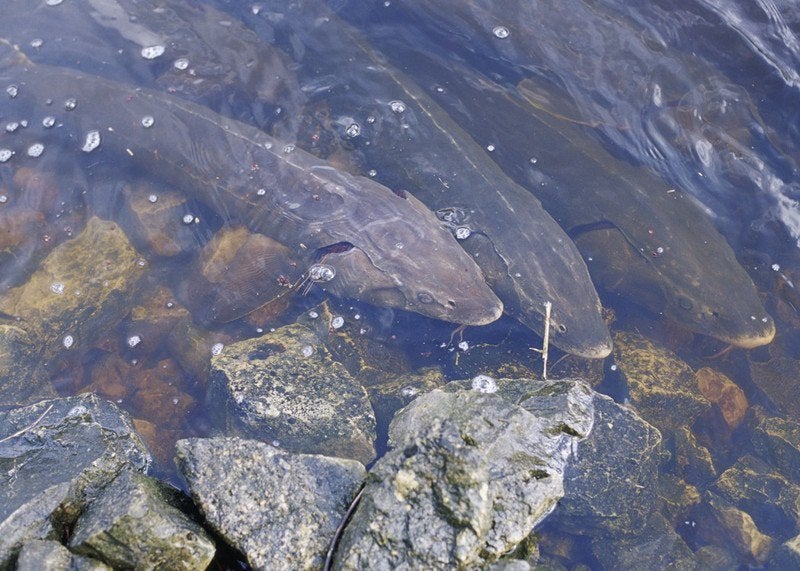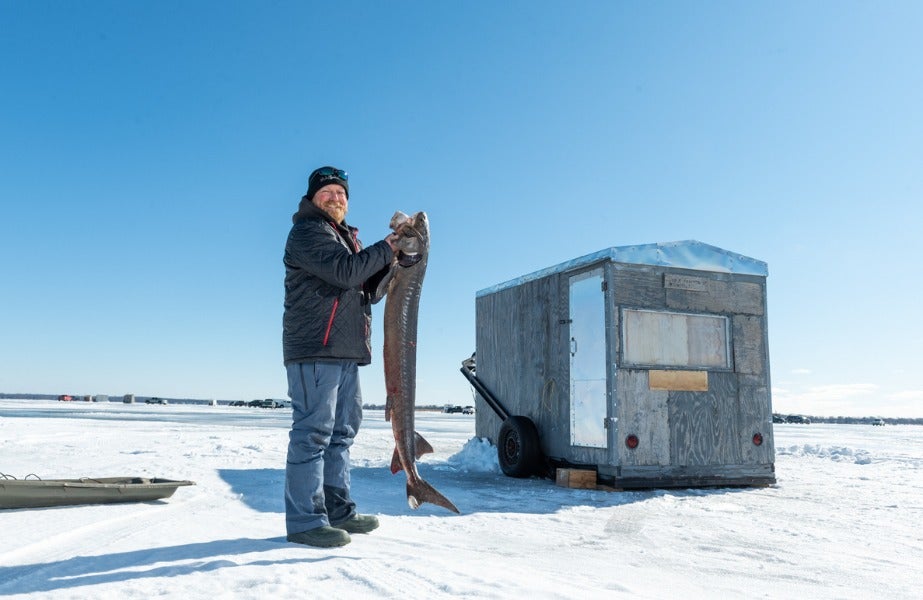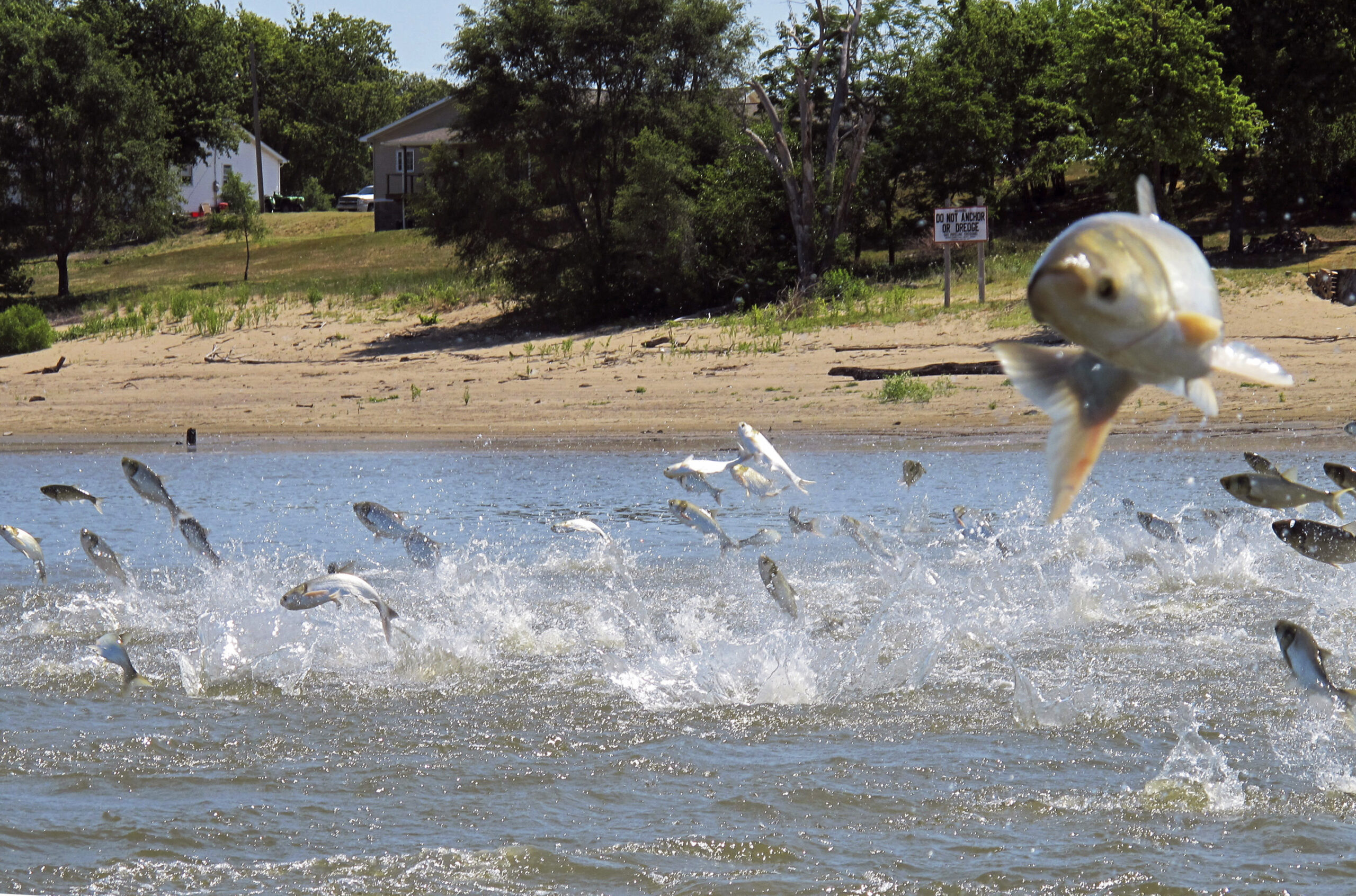The U.S. Fish and Wildlife Service said Wednesday it will review whether lake sturgeon should be listed as a federally threatened or endangered species.
The agency issued its findings on a petition submitted by the Center for Biological Diversity, stating that listing may be warranted due to potential threats to lake sturgeon.
The center’s senior conservation advocate, Jeff Miller, said the agency’s decisions is a positive step for lake sturgeon.
Stay informed on the latest news
Sign up for WPR’s email newsletter.
“They currently are only about 1 percent of their historic numbers and they’re only about half of their former spawning habitats in this country,” said Miller. “We’ve lost them from a lot of places and where they do exist, although there are some good restoration efforts going on, they’re pretty small populations.”
The USFWS said the petition presented “substantial scientific or commercial information” that warrant further review, including threats related to dams, loss of habitat and pollution.
Lake sturgeon is an ancient fish that has survived since dinosaurs roamed the Earth. In the late-19th century, commercial anglers once harvested an average of more than 4 million pounds of lake sturgeon, according to the USFWS. Overharvesting and damming of rivers have contributed to their decline over the decades.
“We’ll be looking for information about the lake sturgeon from states and tribes and (nongovernmental organizations) and conservation groups and anyone else who might have information that will help us get a clear picture of what’s going on with it,” said agency spokeswoman Georgia Parham.
Lake sturgeon are currently found in the Mississippi River and across the Great Lakes, including states like Minnesota, Michigan and Wisconsin. They are the largest fish on the Great Lakes. While their population has diminished, Wisconsin is home to the largest known population of the ancient fish in the Lake Winnebago System, Miller said.
“There’s about 20,000 adult fish that are of spawning age in that whole lake and river system,” Miller said. “Wisconsin actually has one of the best populations.”
George Meyer, executive director of the Wisconsin Wildlife Federation, said the success of lake sturgeon in the Winnebago System demonstrates the species may not require protection everywhere.
“It is very well regulated and has been protected well, and, in fact, the population over the years increased because of that tight regulation,” said Meyer of the Winnebago population. “We would be concerned if that portion of lake sturgeon in this country were placed on either the threatened or endangered species list.”
Meyer feared sports anglers and the local economy would lose the opportunity that currently exists with the sturgeon population in that corner of the state.
“I think it is justified to study other parts of the country where lake sturgeon have been extirpated over the years. From a wildlife standpoint, that makes sense,” said Meyer. “But, including the Lake Winnebago portion in a final decision for endangered or threatened species (listing) would not be a good scientific decision.”
Parham with the USFWS said the process for review the species status has just begun, adding it’s uncertain how long it may take the agency to reach a decision.
The review is also beginning as the Trump administration announced changes this week in the way the Endangered Species Act is applied. Environmental groups have called the move illegal and an attack on protection efforts, citing changes that would make it more difficult to include the effects of climate change in those decisions and a requirement to consider their economic impact.
Parham said it was too early to speculate whether those changes would have any bearing on the lake sturgeon’s review.
Miller believed those changes could impact lake sturgeon, vowing to fight the administration’s rule revisions in court.
“They are not going to help endangered species recover,” he said. “They’re going to do exactly the opposite.”
The new rules are set to take effect next month.
Wisconsin Public Radio, © Copyright 2025, Board of Regents of the University of Wisconsin System and Wisconsin Educational Communications Board.



